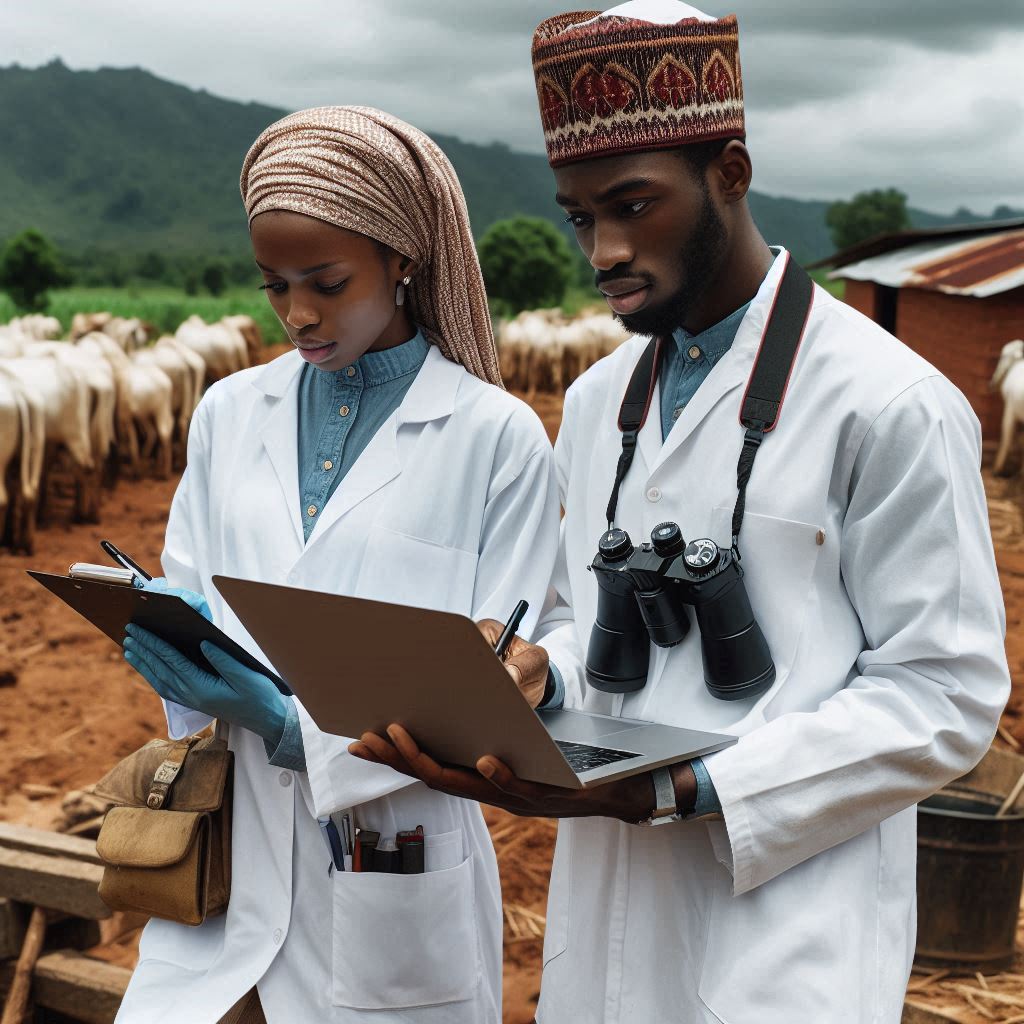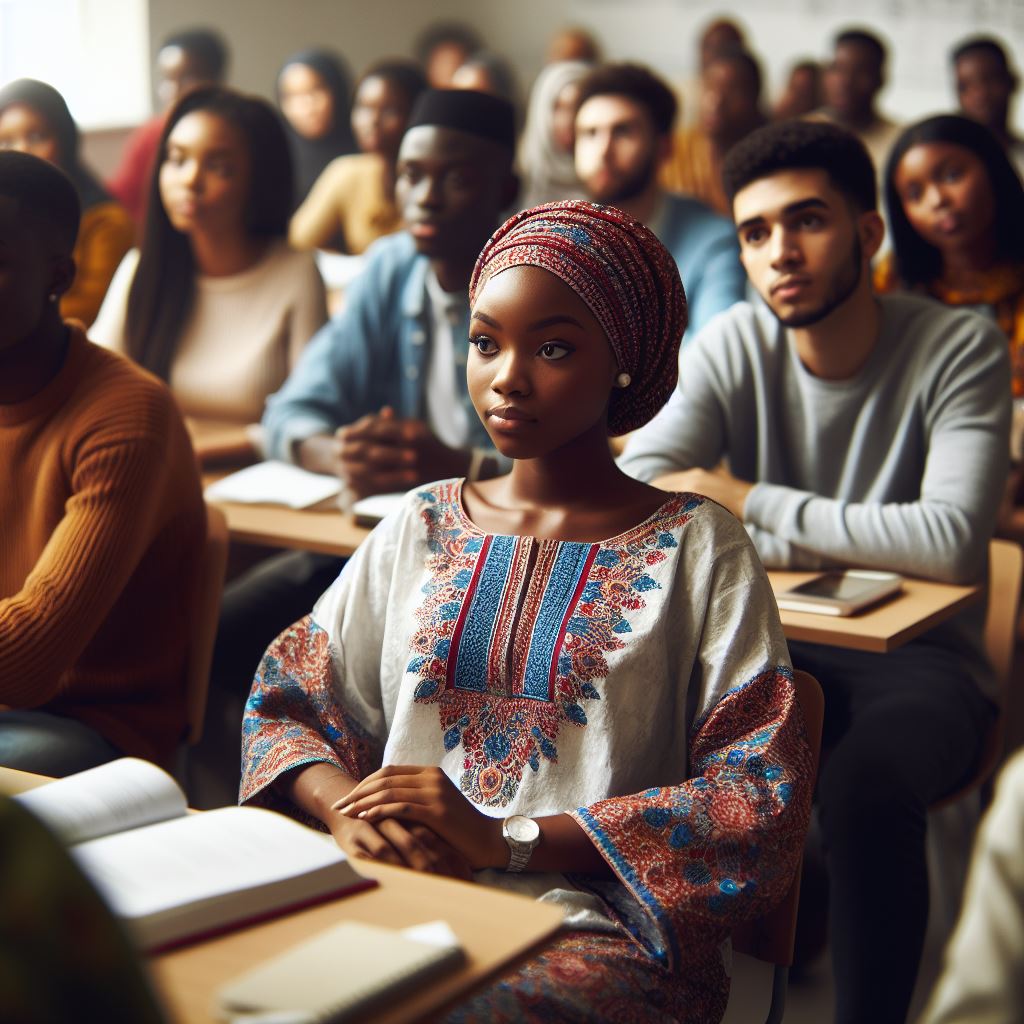Introduction
African and Asian studies explore the rich histories, cultures, and societies of these diverse regions. These academic disciplines offer students invaluable insights into global diversity.
Overview of African and Asian Studies
African studies examine the continent’s complex histories and vibrant cultures. Asian studies delve into the diverse traditions and societies of Asia. Both disciplines cover various aspects, including history, politics, languages, and art.
Importance of Student Experiences
Student experiences in these fields enhance learning. Immersive experiences deepen understanding and appreciation of these cultures. They also build critical thinking and global awareness.
Thesis Statement
This blog post will discuss how student experiences in African and Asian studies enrich their education. We will explore:
- The benefits of cultural immersion programs
- The impact of interdisciplinary learning
- The importance of experiential learning opportunities
These elements are crucial in shaping well-rounded, culturally aware students. By engaging deeply with African and Asian studies, students gain invaluable skills and perspectives. This understanding is essential for thriving in our interconnected world.
Challenges Faced by Students
Studying African and Asian cultures presents unique challenges for students. These include language barriers, cultural differences, and limited resources for research.
Language Barriers for Non-Native Speakers
Language barriers pose significant challenges. Students often struggle with unfamiliar languages and complex scripts. This issue affects their ability to grasp course material.
Common Language Challenges
- Complexity of Languages: African and Asian languages have diverse grammatical structures.
- Limited Language Proficiency: Non-native speakers often lack fluency, hindering comprehension.
- Translation Difficulties: Accurate translations are hard to find, leading to misunderstandings.
- Pronunciation Issues: Correct pronunciation is essential but often difficult for non-native speakers.
Overcoming Language Barriers
- Language Courses: Intensive language courses help build proficiency.
- Tutoring Services: One-on-one tutoring provides personalized assistance.
- Language Exchange Programs: These programs offer practical language practice.
- Digital Tools: Apps and online resources can aid in learning languages.
Cultural Differences Impacting Understanding
Cultural differences impact students’ understanding of course material. These differences can lead to misinterpretations and confusion.
Cultural Challenges
- Different Worldviews: Students may struggle to understand unfamiliar cultural perspectives.
- Historical Contexts: Lack of background knowledge can make historical events difficult to grasp.
- Social Norms: Different social norms and practices can be confusing.
- Cultural Sensitivity: Misunderstandings can arise from a lack of cultural sensitivity.
Addressing Cultural Differences
- Cultural Sensitivity Training: Programs that teach cultural awareness and sensitivity.
- Inclusive Teaching Methods: Using diverse teaching methods to cater to different learning styles.
- Intercultural Exchange Programs: Opportunities for students to experience different cultures firsthand.
- Collaborative Learning: Group projects with students from diverse backgrounds.
Limited Resources and Materials Available for Research
Limited resources and materials present significant challenges. Access to comprehensive research materials is often restricted.
Research Challenges
- Scarcity of Sources: Limited availability of primary and secondary sources.
- Access Issues: Difficulty accessing archives and libraries in other countries.
- Outdated Information: Many available resources are outdated.
- Language Barriers in Research: Important texts may not be available in accessible languages.
Enhancing Research Resources
- Digital Libraries: Access to digital archives and libraries.
- Interlibrary Loans: Collaborations with other institutions for resource sharing.
- Grants and Funding: Funding opportunities for research trips and access to materials.
- Collaborative Research: Partnerships with international scholars and institutions.
Students face significant challenges in African and Asian studies. Language barriers, cultural differences, and limited resources impact their learning.
However, with the right support, these challenges can be mitigated. Language courses, cultural sensitivity training, and enhanced research resources are crucial.
By addressing these issues, we can help students succeed in their studies. This support will enable them to gain a deeper understanding of these rich and diverse cultures.
Read: Scholarships for Communication Arts Students in Nigeria
Opportunities for Cultural Exchange
Student experiences in African and Asian studies offer numerous opportunities for cultural exchange. These experiences are enriching and transformative.
Study Abroad Programs in Africa and Asia
Study abroad programs provide immersive learning experiences. They allow students to live and study in a different cultural environment. These programs offer:
- Cultural Immersion: Students experience daily life in Africa or Asia.
- Language Learning: They practice and improve language skills in real-world settings.
- Academic Enrichment: Students engage with local universities and curricula.
- Personal Growth: Living abroad fosters independence and resilience.
Cultural Immersion
Study abroad programs immerse students in local cultures. They participate in traditional events, try local foods, and explore historical sites. This immersion deepens their understanding and appreciation of the culture.
Language Learning
Students enhance their language skills by interacting with native speakers. They learn to communicate more effectively and gain confidence in their language abilities. This practical experience is invaluable for language acquisition.
Academic Enrichment
Students attend classes at local universities, learning from expert professors. They gain new perspectives on their field of study. This academic diversity enriches their overall education.
Personal Growth
Living abroad challenges students to adapt to new environments. They become more independent and resilient. These experiences contribute significantly to personal development.
Interactions with Professors and Classmates from Diverse Backgrounds
Diverse interactions enrich the educational experience. They offer students a broader perspective and deeper understanding. These interactions include:
- Cultural Insights: Learning from peers and professors with different backgrounds.
- Collaborative Learning: Working on projects with diverse groups.
- Networking Opportunities: Building connections with people from various cultures.
- Enhanced Communication Skills: Practicing effective communication across cultural boundaries.
Cultural Insights
Students gain valuable cultural insights from their diverse classmates and professors. These interactions challenge their assumptions and broaden their worldview. Understanding different perspectives fosters empathy and respect.
Collaborative Learning
Collaborative projects with diverse groups encourage creative problem-solving. Students learn to appreciate different approaches and ideas. This teamwork prepares them for global work environments.
Networking Opportunities
Building connections with people from various cultures enhances students’ professional networks. These relationships can lead to future opportunities and collaborations. Networking is a key benefit of diverse interactions.
Enhanced Communication Skills
Interacting with people from different backgrounds improves communication skills. Students learn to convey their ideas clearly and respectfully. These skills are essential for effective cross-cultural communication.
Exposure to New Perspectives and Ways of Thinking
Exposure to new perspectives fosters critical thinking and innovation. Students learn to approach problems differently and develop unique solutions. This exposure includes:
- Alternative Viewpoints: Understanding how different cultures approach issues.
- Innovative Thinking: Encouraging creativity through diverse perspectives.
- Critical Analysis: Evaluating information from multiple cultural lenses.
- Adaptability: Learning to adapt to various ways of thinking.
Alternative Viewpoints
Students explore alternative viewpoints on global issues. This understanding enhances their ability to analyze and address complex problems. Appreciating diverse perspectives is crucial for global citizenship.
Innovative Thinking
Diverse perspectives stimulate innovative thinking. Students learn to think outside the box and develop creative solutions. This innovation is vital in today’s rapidly changing world.
Critical Analysis
Exposure to different cultural perspectives strengthens critical analysis skills. Students learn to evaluate information from various angles. This critical thinking is essential for academic and professional success.
Adaptability
Learning to adapt to different ways of thinking builds flexibility. Students become more open-minded and adaptable. These qualities are highly valued in global interactions.
Opportunities for cultural exchange in African and Asian studies are transformative. Study abroad programs, diverse interactions, and exposure to new perspectives enrich students’ education.
These experiences foster personal and academic growth, preparing students for a globalized world. Engaging deeply with these cultures enhances understanding and promotes a more inclusive and interconnected society.
Read: Leading Communication Arts Departments in Nigeria
Field Work and Research
Hands-on experience conducting research in the field
Engaging in field work and research is a crucial aspect of studying African and Asian Studies. This hands-on experience allows students to delve deeper into the topics they are learning about in the classroom.
Conducting research in the field provides students with a practical understanding of the cultural, social, and political dynamics of African and Asian countries. It allows them to apply theoretical knowledge to real-world situations and challenges.
Opportunities for internships and practical applications of knowledge
Internship opportunities enable students to gain valuable experience in various organizations working in the African and Asian regions. This hands-on experience not only enhances their understanding but also prepares them for future careers in the field.
Learning from local communities and experts in the region
By learning from local communities and experts in the region, students are able to gain unique insights that cannot be found in textbooks. They are exposed to diverse perspectives and cultural practices that enrich their academic experience.
Field work and research also enable students to develop critical thinking and analytical skills. They learn how to collect data, analyze information, and draw conclusions based on their findings. This practical experience is invaluable in their academic and professional development.
Overall, field work and research in African and Asian Studies offer students the opportunity to immerse themselves in the vibrant cultures and complex realities of these regions.
It allows them to gain a deeper understanding of the issues and challenges facing these societies and prepares them to make a meaningful impact in the field.
Read: Career Paths in Communication and Language Arts

Impact of Political and Social Issues
Understanding the historical context of African and Asian countries is crucial for students studying African and Asian studies. By examining the past, students can gain insights into the political and social issues that have shaped these regions.
Current events and how they relate to coursework
Current events play a significant role in coursework, as they provide real-world examples of the theories and concepts discussed in the classroom. Students are often encouraged to analyze how political and social issues impact the societies they are studying.
Topics such as colonization, globalization, and social justice
The exploration of topics such as colonization, globalization, and social justice is a key component of African and Asian studies. By delving into these subjects, students can gain a deeper understanding of the challenges and opportunities facing these regions.
Colonialism has had a lasting impact on many African and Asian countries, shaping their political, economic, and social structures. Students examine the legacy of colonization and its effects on contemporary issues such as poverty, inequality, and corruption.
Transform Your Career with Expert Guidance
Get personalized mentorship consulting that’s tailored to your unique path. Our expert advice is actionable and exclusive.
Get StartedGlobalization has transformed the economies and cultures of African and Asian countries, bringing both opportunities and challenges. Students explore the impact of global trade, technology, and migration on these regions, as well as the responses of governments and communities.
Social justice is a central concern in African and Asian studies, as many countries in these regions grapple with issues of inequality, discrimination, and human rights abuses.
Students learn about grassroots movements, advocacy campaigns, and policy initiatives aimed at promoting social justice and human rights.
By engaging with these complex and interconnected issues, students develop critical thinking skills, cultural competence, and a global perspective.
They are better equipped to analyze and address the political and social challenges facing African and Asian countries, and to contribute to positive change in these regions.
Read: Comparing Communication Arts and Mass Communication
Collaboration with Indigenous Communities
Building relationships with local communities and organizations is a crucial aspect of studying African and Asian cultures. By working closely with indigenous groups, students can gain a deeper understanding of the traditions, challenges, and perspectives of these communities.
Ethical Considerations
When conducting research in sensitive areas, it is important for students to approach their work with respect, humility, and ethical awareness.
This includes obtaining informed consent, protecting the privacy and confidentiality of participants, and ensuring that the research benefits the community in a meaningful way.
Learning from Traditional Knowledge
One of the most valuable aspects of studying African and Asian cultures is the opportunity to learn from traditional knowledge and practices. Indigenous communities possess a wealth of knowledge about sustainable living, medicinal plants, cultural traditions, and spiritual beliefs.
By engaging with this traditional knowledge, students can expand their own understanding of the world and gain new perspectives on complex issues such as environmental sustainability, community resilience, and cultural preservation.
Career Opportunities and Professional Development:
Internship opportunities with non-profit organizations and NGOs
As students delve into the world of African and Asian Studies, they gain access to a plethora of career opportunities and avenues for professional development. These experiences not only enrich their academic journey but also pave the way for a successful and rewarding future.
One of the most valuable aspects of pursuing a degree in African and Asian Studies is the abundance of internship opportunities with non-profit organizations and NGOs.
These internships provide students with real-world experience, allowing them to apply their knowledge in a practical setting and make a tangible impact on global issues.
Job prospects in international relations, development, and diplomacy
Furthermore, the job prospects in fields such as international relations, development, and diplomacy are vast for students with a background in African and Asian Studies.
Graduates can explore careers in government agencies, international organizations, consulting firms, and more, contributing their expertise to promote cultural understanding and sustainable development.
Networking with alumni and professionals in the field
Additionally, students have the advantage of networking with alumni and professionals in the field through various events, workshops, and conferences.
These connections offer valuable mentorship, guidance, and potential job opportunities, helping students to navigate their career paths and establish themselves in the industry.
In fact, the study of African and Asian Studies opens doors to a myriad of career opportunities and avenues for professional development.
From internships with non-profit organizations to job prospects in international relations, students are equipped with the skills and knowledge to make a difference in a global context.
By networking with alumni and professionals in the field, students can build meaningful connections and carve out successful careers that align with their passion for cultural diversity and social change.
Conclusion
In this blog, we explored the importance of African and Asian studies in fostering cultural understanding.
We discussed how these studies enhance global awareness, promote inclusivity, and reduce prejudice. Understanding these cultures also enriches personal growth and strengthens community bonds.
Value of Student Experiences
- Broaden Horizons: Students gain a deeper appreciation of diverse traditions.
- Foster Empathy: Exposure to different cultures builds empathy and reduces stereotypes.
- Enhance Skills: Cross-cultural understanding improves communication and collaboration skills.
Student experiences in African and Asian studies are invaluable. These experiences provide unique insights and foster a global perspective. Students develop essential skills that prepare them for diverse workplaces and communities.
Call to Action
Share your own experiences and perspectives on African and Asian studies. Engage in conversations about cultural understanding and its importance. Your stories can inspire others and contribute to a more inclusive world.
Join us in celebrating and learning from the rich cultures of Africa and Asia. Your participation helps build a more connected and empathetic global community. Let’s continue to learn, share, and grow together.




